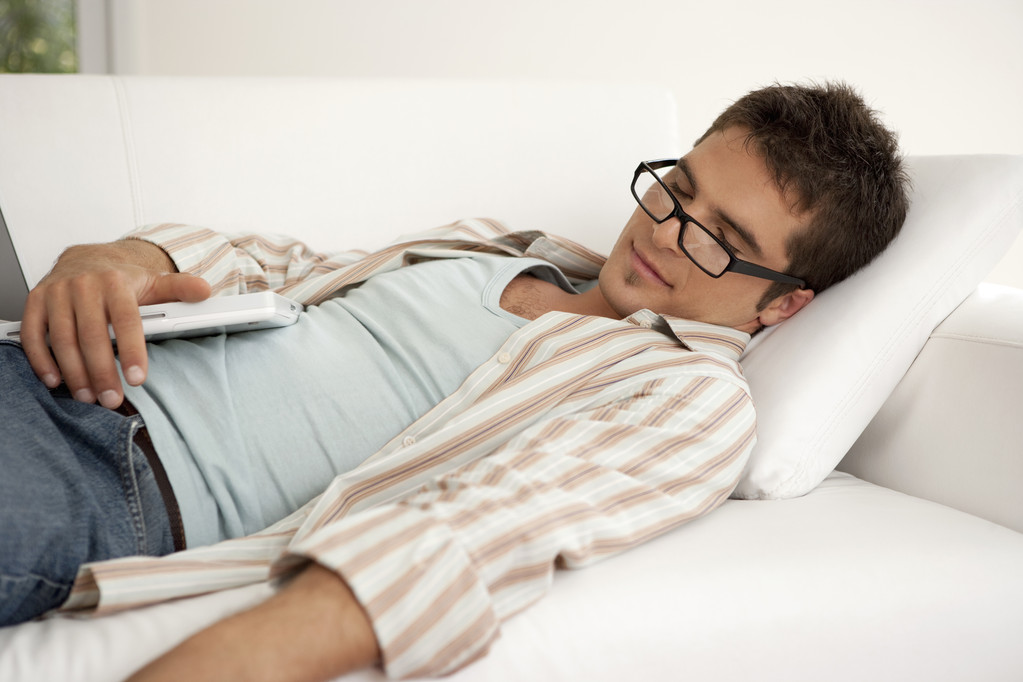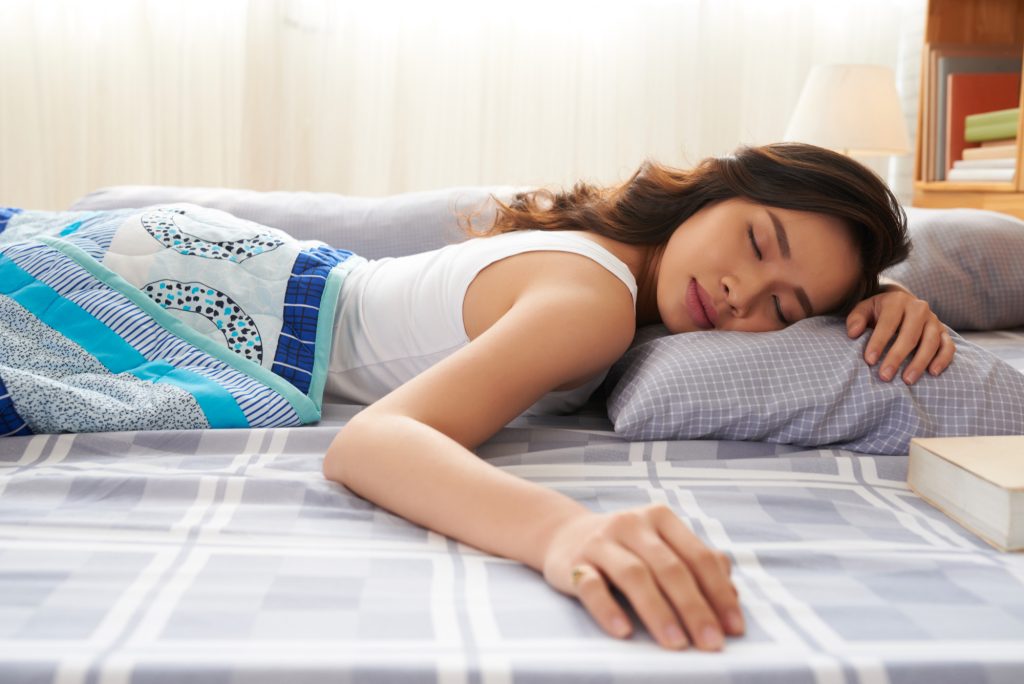Sleep Efficiency: Sleep Aid Explained
September 13, 2023

Welcome, dear reader, to the magical world of sleep! We’re about to embark on a journey through the realm of dreams, where we'll unravel the mysteries of sleep efficiency. So, put on your pajamas, grab a cup of warm milk, and let's dive right in!
Sleep efficiency, in the simplest terms, is a measure of how well you sleep. It’s like a report card for your nightly slumber. But instead of grades in math and English, you get scores for how long you slept, how long it took you to fall asleep, and how often you woke up during the night. Intriguing, isn't it? Let's delve deeper into this fascinating topic.

Understanding Sleep Efficiency
Imagine sleep as a beautiful symphony. Each movement represents a different stage of sleep, and the entire performance is your sleep cycle. Sleep efficiency is the conductor of this symphony, ensuring every movement plays out perfectly, and the whole performance is flawless.
Now, you might be wondering, how do we measure this elusive conductor? Well, it's calculated as the ratio of the total time spent asleep (not just in bed) to the total time spent in bed. It's usually expressed as a percentage. The higher the percentage, the more efficient your sleep is.
Importance of Sleep Efficiency
Why should we care about sleep efficiency? Well, it's like asking why we should care about the quality of the food we eat. Just as nutritious food keeps our bodies healthy, efficient sleep keeps our minds healthy. It rejuvenates us, keeps us alert, and helps us function at our best during the day.
Moreover, poor sleep efficiency can be a sign of sleep disorders, such as insomnia or sleep apnea. It can also be an indicator of other health issues like stress, anxiety, or depression. So, keeping an eye on your sleep efficiency can be a good way to monitor your overall health.
Factors Affecting Sleep Efficiency
Several factors can affect your sleep efficiency. These include your sleep environment (is your bed comfortable? Is the room too hot or too cold?), your lifestyle (do you drink caffeine or alcohol? Do you exercise regularly?), and your mental health (are you stressed or anxious?).
Understanding these factors can help you improve your sleep efficiency. For example, you might find that you sleep better when the room is cooler, or when you avoid caffeine in the evening. It's all about finding what works best for you.
Improving Sleep Efficiency
Now that we understand what sleep efficiency is and why it's important, let's explore how we can improve it. Just like a gardener tending to their plants, we need to nurture our sleep habits to ensure we get the best sleep possible.
Improving sleep efficiency is not a one-size-fits-all process. It's a personal journey that requires understanding your own sleep patterns and making adjustments based on what works best for you. But don't worry, we're here to guide you through this journey.
Creating a Sleep-Inducing Environment
Firstly, let's talk about your sleep environment. This is like the soil in which your sleep habits grow. A good sleep environment is dark, quiet, and cool. You might want to consider investing in blackout curtains, earplugs, or a fan to help create the perfect sleep environment.
Also, make sure your bed is comfortable. Your mattress, pillows, and blankets should all contribute to a cozy, welcoming sleep environment. Remember, your bed is a sanctuary for sleep, not a workspace or a dining table. Keep it clean, tidy, and reserved for sleep.
Establishing a Regular Sleep Schedule
Next, let's discuss your sleep schedule. Just like a plant needs regular watering, your body needs regular sleep. Try to go to bed and wake up at the same time every day, even on weekends. This helps regulate your body's internal clock, making it easier to fall asleep and wake up.
Also, avoid long naps during the day, as they can disrupt your sleep schedule. If you need to nap, try to keep it short (20-30 minutes) and early in the afternoon.
Role of Sleep Aids in Improving Sleep Efficiency
Now, let's turn our attention to sleep aids. These are tools or techniques that can help you sleep better. They're like fertilizers for your sleep habits, giving them a boost when they need it.
There are many different types of sleep aids, from over-the-counter medications to natural remedies. Let's explore a few of these in detail.
Over-the-Counter Sleep Aids
Over-the-counter sleep aids are medications you can buy without a prescription. They typically contain antihistamines, which make you feel drowsy. While these can be effective in the short term, they're not a long-term solution for sleep problems. They can also have side effects, like daytime drowsiness, dizziness, and confusion.
It's important to use these sleep aids as directed and to consult your doctor if you have any concerns. Remember, these are not a cure for sleep problems, but a temporary solution.
Natural Sleep Aids
Natural sleep aids are non-prescription products that can help you sleep better. These include herbal supplements like melatonin, valerian root, and chamomile. These can be a good option if you prefer a more natural approach to improving your sleep.
However, just because something is natural doesn't mean it's safe or effective for everyone. Always do your research, and consult your doctor before starting any new supplement regimen.

Conclusion
And there you have it, dear reader! A comprehensive guide to sleep efficiency and sleep aids. Remember, sleep is a vital part of our health and wellbeing. So, take care of your sleep habits, just as you would take care of your diet or exercise routine.
Now, it's time for us to say goodnight. But don't worry, we'll be here, ready to guide you through the world of sleep whenever you need us. Sweet dreams!

 Back to Blog
Back to Blog